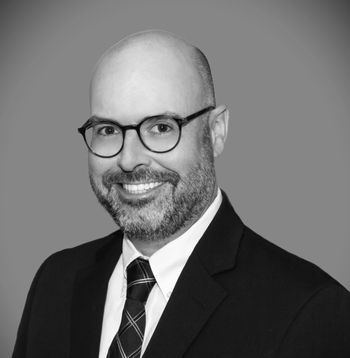PROF ELLWANGER: Unclear how TX universities will react after Gov Abbott bans DEI spending
My concern is that the current operations of DEI offices will just be covertly reassigned to other bureaus within the university.
Adam Ellwanger is a professor of English at the University of Houston - Downtown. His primary areas of expertise are rhetoric and critical theory. He writes political and cultural commentary for outlets like Human Events, Quillette, American Greatness, The American Conservative, New Discourses, Minding the Campus, and many more.
Texas conservatives and classical liberals alike celebrated a win this summer when Governor Greg Abbott signed into law Senate Bill 17 (SB 17) which prohibits public universities in the state from “establish[ing] or maintain[ing] a diversity, equity, and inclusion [DEI] office” in addition to adding a number of regulations aimed at stopping the formal implementation of DEI and woke social justice ideology in university governance and academic programming.
Recent reporting from Campus Reform has shown that wherever they exist, DEI offices typically serve as the vehicle for imbedding left-wing activism into university policy. Often, these offices also serve as the enforcement arm of the campus left, processing and adjudicating complaints that allege violations of a significantly expanded concept of Title IX protections. Like the so-called “Ministry of Love” in Orwell’s 1984, the “Office of Diversity, Equity, and Inclusion” is a title that serves as the velvet glove that covers the iron fist of the institutional bureaucracy.
[RELATED: PROF. ELLWANGER: These are the secret aims of anti-racism statements]
SB 17 is a thoughtfully-crafted piece of legislation that seeks to impose legal and financial penalties on colleges and universities that continue to use public revenue for the spread of what amounts to left-wing propaganda. As a professor who has had many unpleasant run-ins with the DEI stasi at my Texas university, I don’t want to suggest that we would be better off without SB 17, or that it could have been meaningfully improved through further amendment. But while I am happy that the Texas legislature is taking the threat of the woke industrial complex in our schools seriously, I am not very optimistic about the new law’s chances of defeating DEI in our universities. Indeed – it’s possible that SB 17 makes the situation worse.
Odious as the DEI offices are, they occupy a single piece of campus real estate. While the advice of these offices often impacts how the entire institution operates, they allow a certain degree of transparency in that you know where new DEI policies are coming from. This transparency enables important modes of resistance. As a professor, you know exactly the extent and purview of the office’s power, and therefore have a way to fight them when they exceed their authority. Further, the existence of a DEI office makes it easier to push for more transparency because it is clear where Freedom of Information Act requests might be directed in order to expose corruption.
The question, ultimately, is this: Faced with the reality of SB 17, will the administrators of Texas universities accept the spirit of the law (and stop pushing DEI policies altogether), or will they make token moves to acknowledge the letter of the law while finding clever ways to circumvent its spirit? My own university system has already sent out an email suggesting that it might be the latter.
Challenging the idea that wokeness is now receding in America, political commentator N.S. Lyons has recently noted that “one does not simply walk away from religious beliefs.” The implication here is that wokeness (and its institutional manifestations like DEI offices) amounts to a religion for many of its purveyors. In this reading, campus staff and administrators are the true believers, while faculty serve as preachers (who instruct them on the finer points of the doctrine) and mystagogues (who lead their students into the mysteries of the faith).
[RELATED: PROF ELLWANGER: Anthropology prof loses Twitter account after woke pushback]
My concern is that Lyons is correct: that SB 17 will not be enough to push universities to disavow DEI. If that’s right, then the current operations of DEI offices will just be covertly reassigned to other bureaus within the university. Policies that enforce the principles of DEI will be concealed through subtle revisions in language and terminology. On top of that, without the existence of a DEI office, it will be harder than ever to determine where those administrative policies originate. The DEI agenda will be decentralized and shopped out to various offices across the university bureaucracy – ones with less nefarious titles like “Office of Institutional Effectiveness” or the “Center for Academic Excellence.” If that happens, less transparency and accountability could ensure that DEI initiatives will actually gain ground rather than lose it.
It is undeniable that SB 17 is a step in the right direction, but enforcement will be key. Legislators cannot simply assume that the problem is now solved. Rigorous oversight will be necessary to identify the inventive ways that universities will find to circumvent the spirit of the law. Going forward, it will be essential that state representatives revisit and revise the law to close the loopholes that will inevitably be exposed over the coming years. In all likelihood, it will require tenured faculty who oppose the DEI agenda to find the courage to publicize policies and practices that might violate the intent of the law.
In short, SB 17 is a tool that could eventually restore universities’ political neutrality and reaffirm the value of open academic inquiry. But there is a lot of work left to do. SB 17 is not an end in itself – rather, it is just the beginning of the fight to reclaim Texas universities from the radical left.
Editorials and op-eds reflect the opinion of the authors and not necessarily that of Campus Reform or the Leadership Institute.

